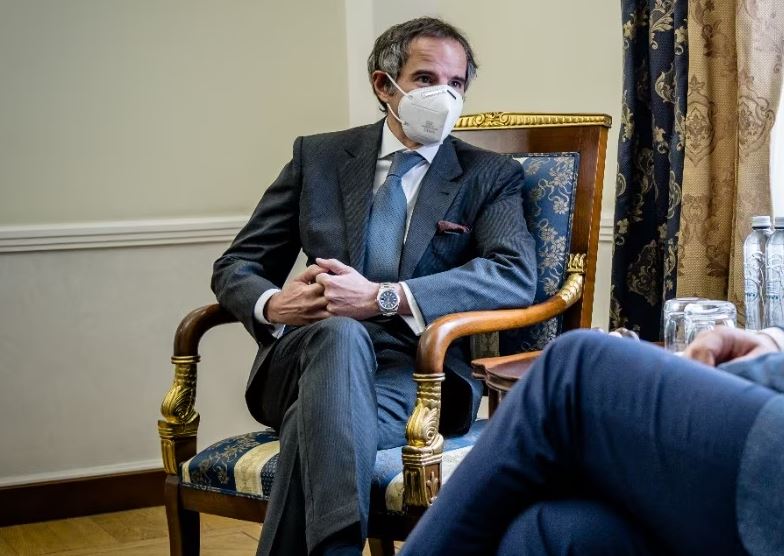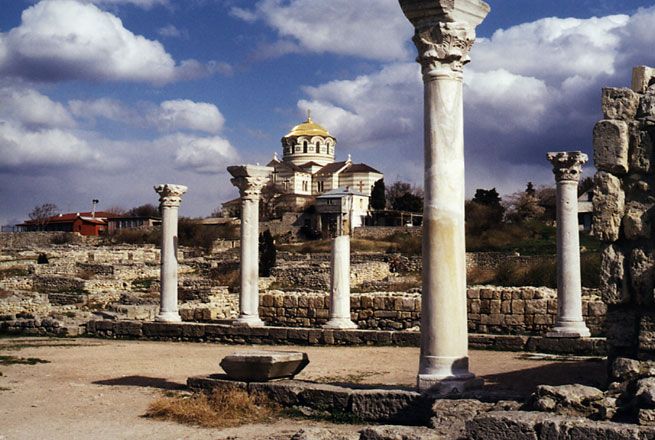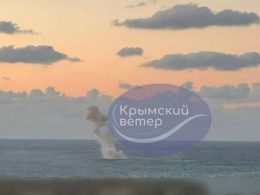The International Atomic Energy Agency (IAEA), the UN's nuclear watchdog, has financed Russian state scientific research in Crimea since Moscow's annexation of the Ukrainian peninsula in 2014, according to an investigation by Radio Free Europe/Radio Liberty (RFE/RL).
Internal agency records obtained by RFE/RL show that the IAEA signed at least two agreements with Russian-based research institutes for studies that included field work in Crimea. These contracts were signed between 2016 and 2019, with one being extended in the summer of 2019.
RFE/RL says critics argue that this funding is tantamount to legitimizing Russian aggression against Ukraine. The UN rejected Moscow's claim to Crimea in a General Assembly resolution adopted after the Russian takeover in 2014. IAEA chief Rafael Grossi has stated that the agency is committed to the UN Charter's principle that "national borders are not to be changed by force."
One of the contracts, signed in September 2016 with the Joint Institute for Nuclear Research (JINR), focused on studying pollution trends "in the Russian coastal areas of the Black Sea" using nuclear and related analytical techniques. The project proposal specifically stated that field work would be carried out in Sevastopol, a city in occupied Crimea.
Another contract, signed with Russia's Federal Center for Animal Health, was for a project studying Avian flu viruses from migratory wild birds. A final report for this project submitted in September 2023 stated that feather samples from birds were gathered in the "Republic of Crimea."
The investigation also uncovered potential inconsistencies in how the IAEA refers to occupied Ukrainian territories. An internal IAEA list for an upcoming event in Moscow, reviewed by RFE/RL, includes two participants from the Russian delegation listed as being from "Donetsk, Russian Federation," despite Donetsk being a major city in eastern Ukraine occupied by Russian-backed forces since 2014.
IAEA's excuses and Ukraine's reaction
RFE/RL says the IAEA defended its actions, stating that the studies were of a "purely technical nature" and do not constitute any change in the agency's position on the status of Crimea. An IAEA spokesperson claimed,
"The designations employed by the counterparts, and the presentation of material in their reports, do not imply the expression of any opinion whatsoever on the part of the IAEA concerning the legal status of any country or territory or of its authorities."
Ukraine's permanent diplomatic mission in Vienna, where the IAEA is headquartered, told RFE/RL that no IAEA-sponsored research projects in Crimea had been approved by the Ukrainian government. The mission stated,
"Our position remains clear: Ukraine resolutely opposes any international projects or any other activities in the temporarily occupied territories of Ukraine, including the Autonomous Republic of Crimea and the city of Sevastopol, as this violates our state's sovereignty and territorial integrity."
Related:
- Stoltenberg says Russia’s nuclear threats should not deter military aid to Ukraine
- OSINT confirms destruction of eight fuel tanks at oil depot in occupied Crimea
- Ukraine warns IAEA of Russian intentions to target nuclear facilities ahead of winter
- Russian naval security barriers for Kerch Bridge found floating near Kerch coast
- Two nuclear power plant units were disconnected during Russia’s August 26 attack, Ukraine informs IAEA
- G7 ministers renew pledge to reject Russian annexation of four Ukrainian oblasts
- Russia weaponizes history to erase Crimean Tatar identity
- Weapons, occupation, and influence: 5 reasons to sanction Russia’s Rosatom now
- “Crimea is Ukraine,” Ukraine’s Foreign Ministry says after Sikorski’s Crimean UN control, referendum suggestion





